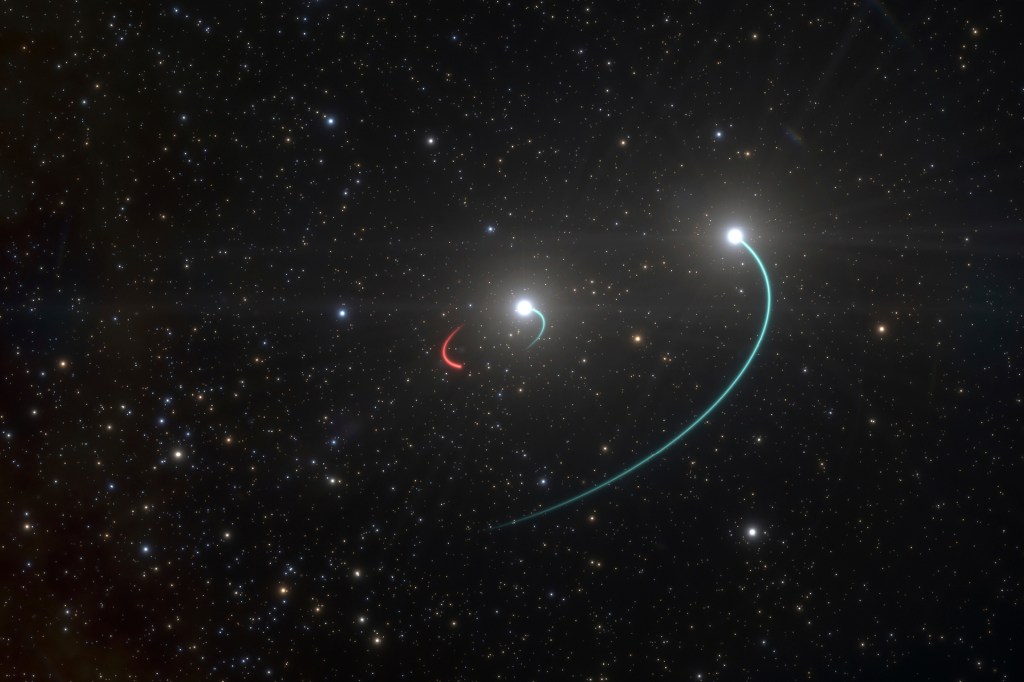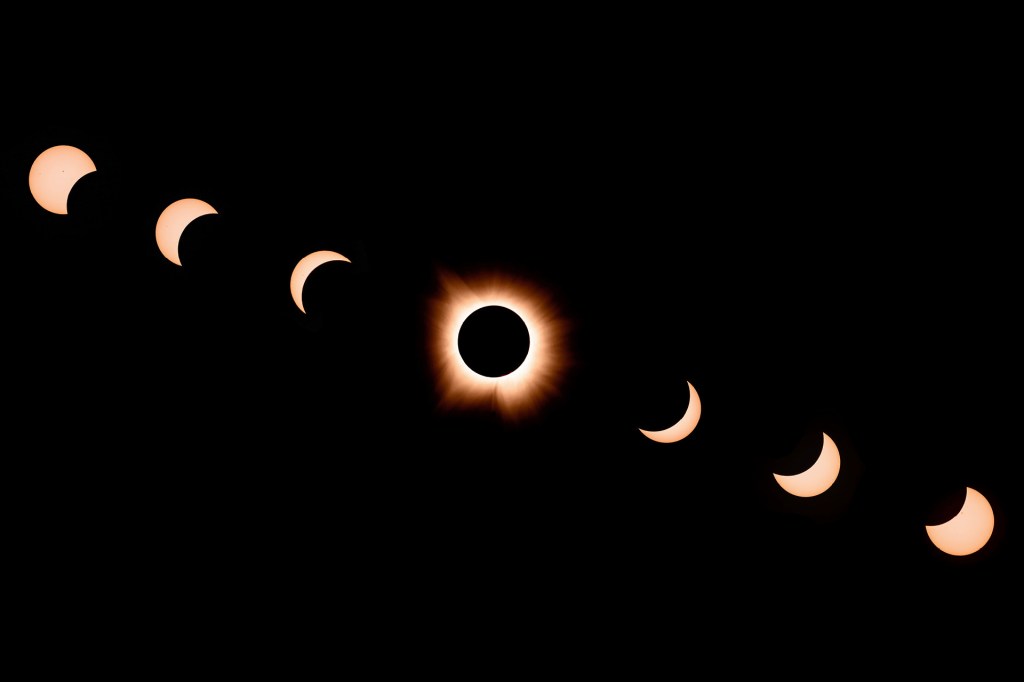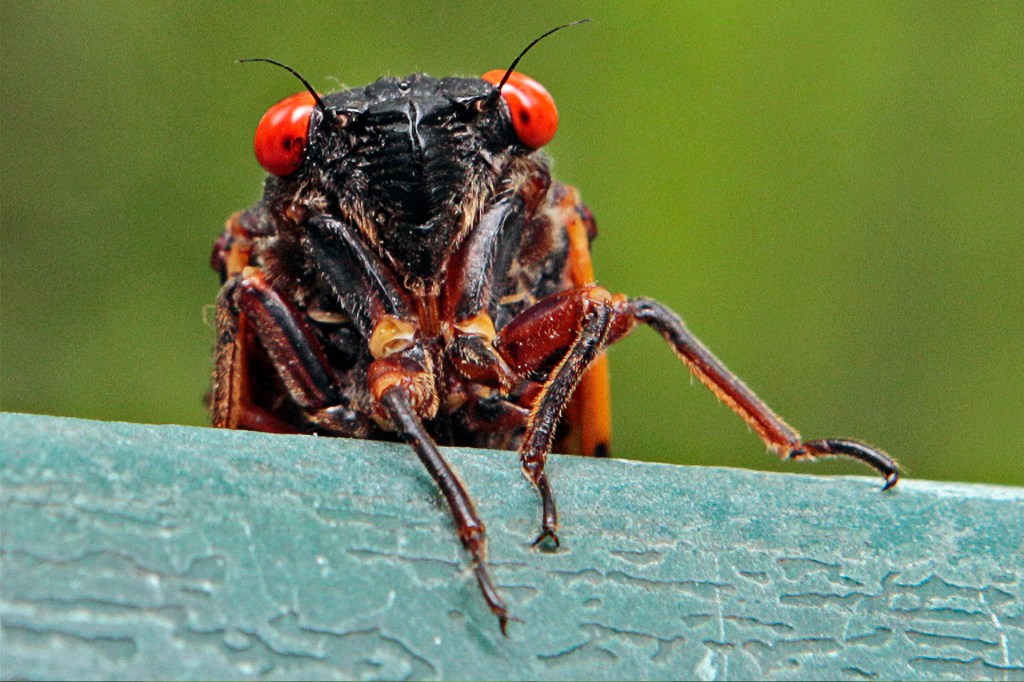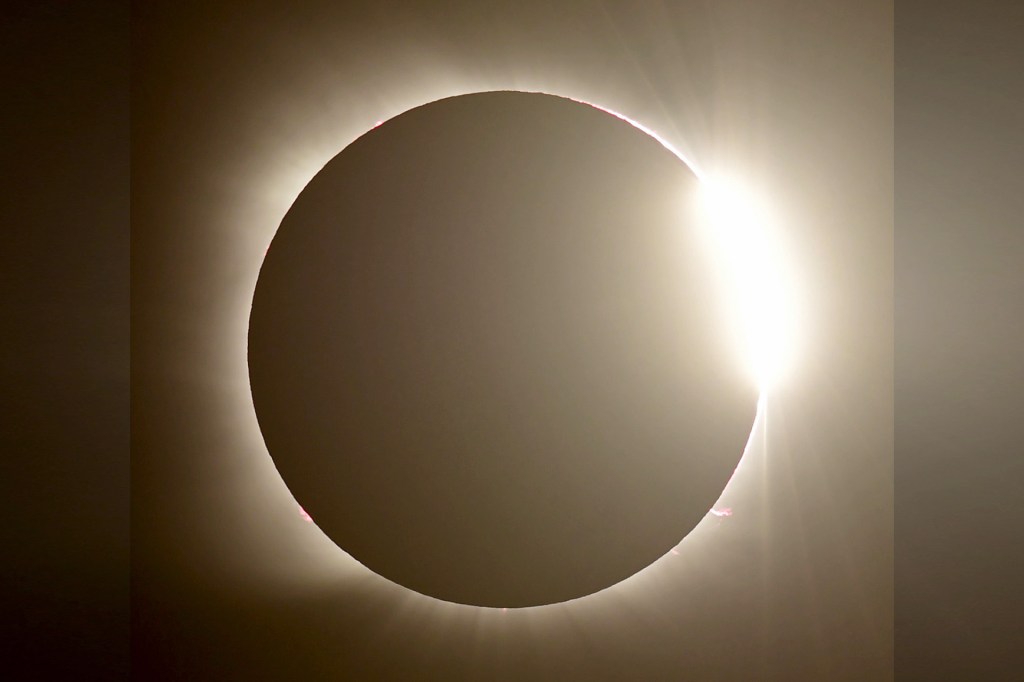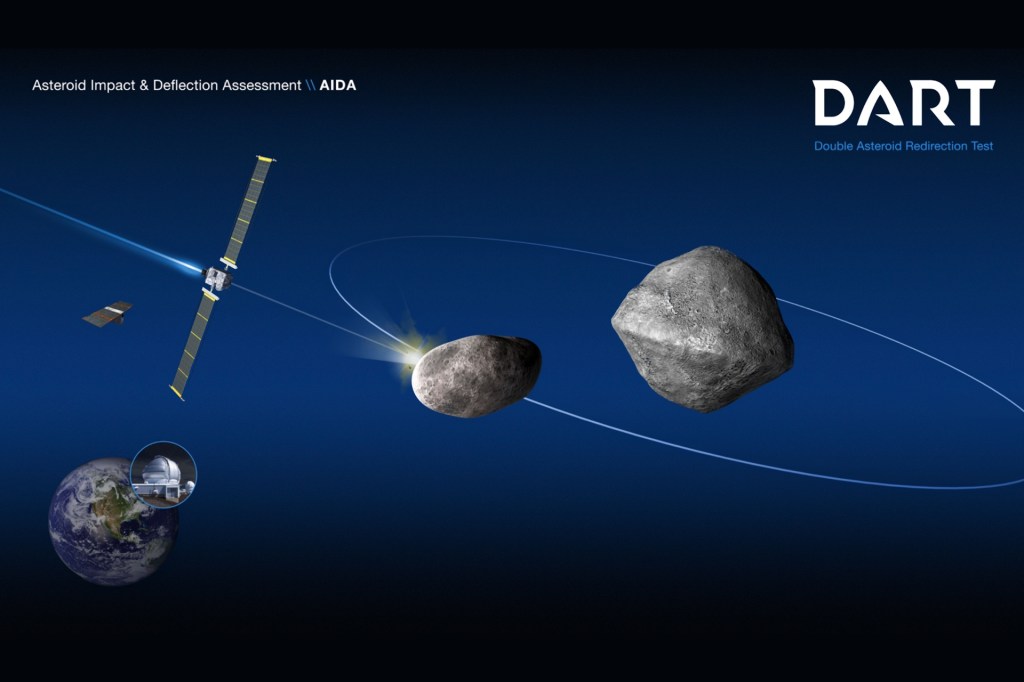
NASA is planning to launch the DART mission in 2021. DART stands for Double Asteroid Redirection Test. The goal of the mission is to see if NASA can change the course of objects in space, such as asteroids, that might hit Earth.
The DART spacecraft weighs 1,100 pounds. After it’s launched, it will crash into a space rock with the force of three tons of TNT. The space rock NASA is targeting is called Didymoon. That’s one of a pair of asteroids near the Earth. They travel around the sun together. Didymoon is 535 feet wide. It orbits the larger asteroid.
But a new study shows that a DART collision with Didymoon might create a meteor shower. The study appears in The Planetary Science Journal. This would be the first meteor shower caused by human activity.
Space Debris
According to the study, the spacecraft’s impact with Didymoon is expected to produce between 22,000 and 220,000 pounds of debris. Most of it will enter into the larger asteroid’s orbit. But some of it may come Earth’s way within 30 days of the crash. That would cause a meteor shower.
Paul Wiegert wrote the study. He’s an astronomy professor at the University of Western Ontario, in Canada. Wiegert thinks we might see a few grams of asteroid debris over a couple of days. That debris would result in “a few to 10” meteors, he told the New York Times.
Tom Statler is the program scientist for DART at NASA. He says the team’s analysis shows there is “no significant debris hazard” to Earth.
Astronomers say the DART mission will be a chance to see how human activity can affect activity in space. Aaron Boley is a planetary astronomer. He suggests moving the launch date for DART by a few weeks. This would lessen the chance of debris coming to Earth. “Space is big, but what we do in space can affect us,” Boley told the New York Times.




